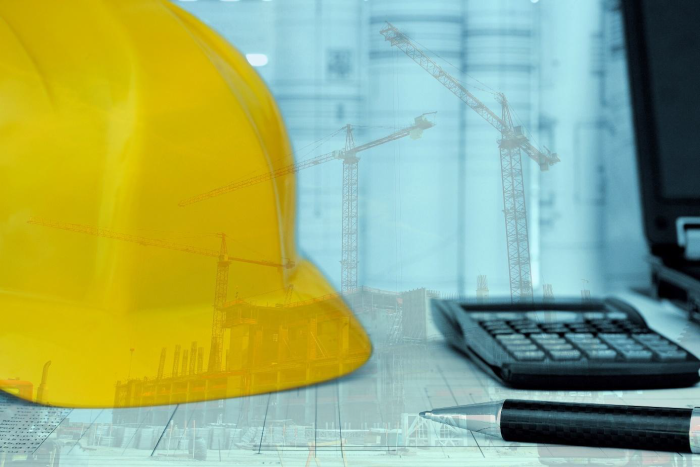
 Data Structure
Data Structure Networking
Networking RDBMS
RDBMS Operating System
Operating System Java
Java MS Excel
MS Excel iOS
iOS HTML
HTML CSS
CSS Android
Android Python
Python C Programming
C Programming C++
C++ C#
C# MongoDB
MongoDB MySQL
MySQL Javascript
Javascript PHP
PHP
- Selected Reading
- UPSC IAS Exams Notes
- Developer's Best Practices
- Questions and Answers
- Effective Resume Writing
- HR Interview Questions
- Computer Glossary
- Who is Who
Construction Project Management
A construction project can be extremely overwhelming, especially a large project that may take several months to complete. Whether you are building an apartment or a theater, a construction project requires effective management and a dedicated team of employees who can accurately execute the supervisor's instructions. Like any other project, construction management comes with a range of phases. For example, designing, planning, and scheduling are a few stages of construction. Keep reading to learn about the different construction management stages and what the job entails.
What is Construction Project Management?
As the name suggests, construction project management is a series of steps undertaken to finish a construction project, which can be anything from building a small house to a multi?national workplace. The project is assigned to the manager, who is responsible for delegating different management tasks to competent candidates. They also manage human resources and the processes involved in construction.

The tasks and responsibilities of a construction project manager go beyond that of a general manager. Since construction is a complex industry, a manager must have the skills and expertise in construction tools, processes, and stages. Profound knowledge in the area will help them guide their teams in the right direction.
Stages of Construction
Construction involves five stages, which can be further divided into sub?stages based on the complexity of the project and the manager's experience.
Conception
The project starts with conception, where the project manager evaluates the design to determine whether or not the project is achievable. At this stage, you figure out if the costs and the locations are viable. As a manager, you are supposed to hire a trusted and qualified engineer for the construction work. They will get you the blueprints, virtual designs, and an execution plan for the construction. Once everything seems fine, you can go ahead with the project initiation document (PID) that gives the details of the business' construction requirements, budget, duration, and so on.
Pre?construction
Before the actual construction begins, there's a pre?construction phase. It's planning precisely and involves a detailed project layout. During planning, you need to check the on?site construction location and soil quality, pick a team, delegate responsibilities to the candidates based on their competency, and order materials. The PMP (project management plan) describes the deliverables and the milestones. The team also develops a risk management plan so that if a risk or a complication arises, you will have the plan to deal with it.
Project Execution
The construction starts here. Once the planning part is over, you will have the team ready for executing work, the materials ready, and a detailed plan of how exactly each process must be carried out for optimum results. Remember, this phase and the upcoming ones will rely on how well you have done the conception and planning. Execution is about deploying the plan and following the supervisor's instructions closely.
Monitoring
The project is monitored at each stage of construction to ensure that every phase is finished properly before the team moves on to the next phase. The manager tests the construction identifies the errors and suggests the best solutions. They must also train the staff throughout the construction phase so that errors are minimized, and risks are addressed well. The manager keeps a close eye on the project and documents the lessons learned to streamline future projects. These help the team understand the challenges, risks, and ways to overcome them efficiently.
Close
The project might go on for some time before it is closed. Once the project is completed, the managers organize a meeting where each phase of the project, team members' contributions, lessons learned, and other factors are discussed. During this phase, the team discusses which objectives were left unfulfilled. Based on these meetings, the manager draws construction reports.
Responsibilities of the Project Manager in Construction Work
To be a successful construction project manager, you need to have excellent communication skills. Your project's success depends on how well you communicate your objectives to the team. Your employees need clear instructions regarding how to accomplish a task. You should also have good knowledge of budgeting. Before you start construction, you need to establish a budget based on what your company can afford.
A project manager should also know how to delegate responsibilities so that each employee gets to work on tasks they are comfortable doing and can finish accurately. They must also monitor whether the team is on schedule and whether they can complete the project by the deadline.
Technical Skills
A project manager requires a set of technical skills, especially when it comes to drawing blueprints and managing costs. If you are planning a career in this field, here's the list of the technical skills you need to acquire.
Knowledge of blueprints
Computer software apps related to the design and construction industry
Basic knowledge of architecture and engineering principles
Budgeting and negotiation
Cost management
In addition to these, a manager must be able to coordinate different elements of a construction project to ensure a smooth and seamless transaction. Basic organizational skills are mandatory, and so is the ability to delegate various tasks. At times, you are faced with tasks that involve problem?solving skills and the ability to work under pressure.
You don't necessarily need a certification to become a construction project manager, but applying for a course and getting certified will certainly increase your chances of landing a high?paying job. It will also enhance your resume. You can start with the Project Management Professional (PMP) certification that's valid for the role of project manager across all industries. Later, you can pursue a Certified Construction Manager (CCM) or Certified Professional Constructor (CPC). Given the complexity of this role, companies look for skilled candidates with experience in this field.
Bottom Line
These were the stages of construction project management. The job can get complex, depending on the type of project you handle and its duration. Acquiring the skills mentioned above will be a good place to start. You can also sign up for the project management training programs to learn the ins and outs of this industry.

